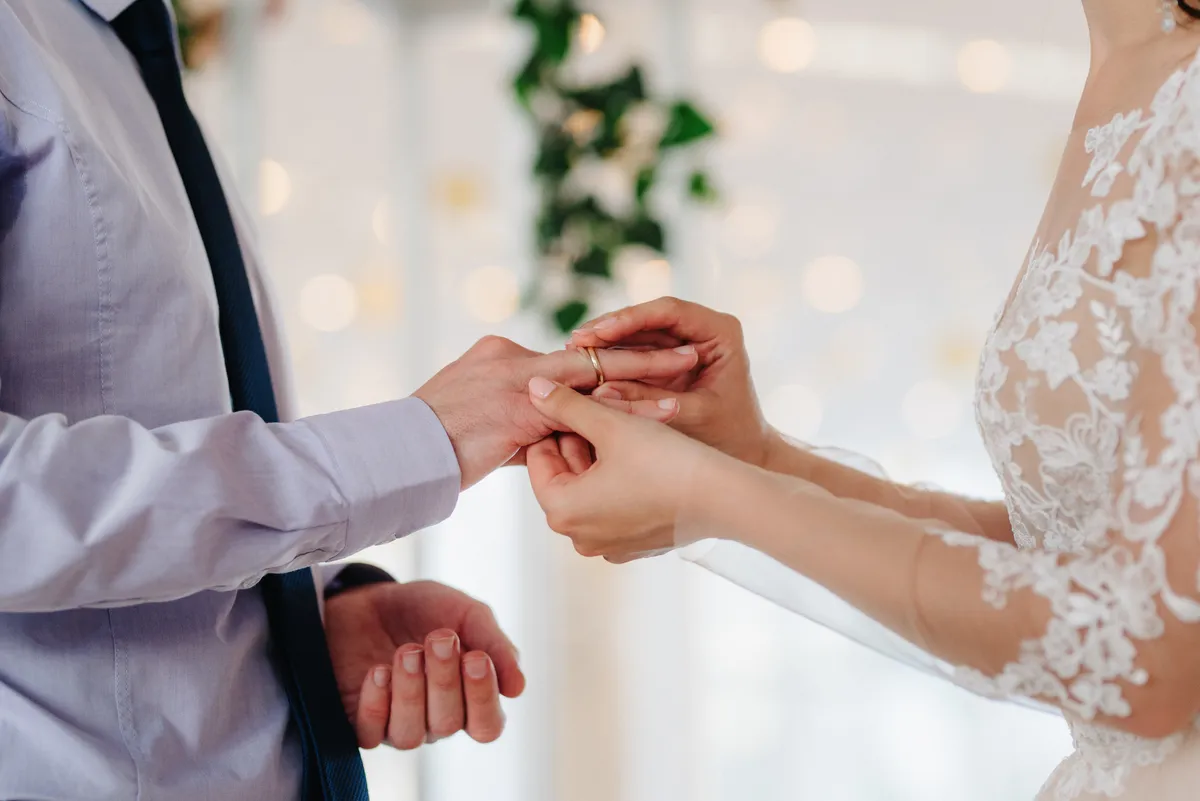Understanding the Differences: Marriage License vs Marriage Certificate

Planning your wedding can feel like a maze of legal paperwork, especially when it comes to understanding the difference between a marriage license and certificate. These two documents play pivotal roles in the nuptial process, each serving its unique purpose.
This blog post will help unravel their differences by explaining what they are, how and when you should obtain them, and their respective significance in your marital journey. Ready to clear up the confusion? Let's dive right in!
Key Takeaways
- A marriage license is obtained before the wedding ceremony and grants legal permission to get married.
- A marriage certificate is issued after the wedding ceremony and serves as proof of marriage.
- The process for obtaining a marriage license and a marriage certificate may vary depending on your jurisdiction.
- Both documents have significant legal implications and are necessary for various purposes such as applying for spousal benefits or changing your surname.
What is a Marriage License?
A marriage license is a legal document that allows a couple to get married and is obtained prior to the wedding ceremony.
Purpose and significance
A marriage license plays a vital role as it gives the soon-to-be-married couple legal permission to marry. It's a crucial step in the wedding planning process, obtained before the ceremony commences.
On the other hand, a marriage certificate gets issued after the wedding and acts as a solid proof of marriage. Both documents carry equal importance - while one permits couples to tie their knots legally, another confirms and records that they have done so officially.
This certificate can be essential for various legal purposes down the line such as applying for spousal benefits or changing your surname post-wedding.
When and where to obtain a marriage license
To obtain a marriage license, you need to visit the county clerk's office. The office is usually located in the county where either you or your partner resides. Here are the steps to obtain a marriage license:
- Visit the county clerk's office during their business hours.
- Bring valid identification, such as a driver's license or passport, for both parties.
- Provide proof of age and residency, if required by your jurisdiction.
- Pay the applicable fee for the marriage license, which varies by location.
- Fill out the application form with necessary information about both individuals.
- In some cases, you may need to wait for a specific period before receiving the license.
Cost of a marriage license
Obtaining a marriage license does come with a cost. The exact fee for a marriage license varies by jurisdiction, but it typically ranges between $20 and $100. It is important to check with your local county clerk's office or government agency to determine the specific cost in your area.
Keep in mind that this fee may be subject to change, so it's best to inquire about the current rates when applying for your marriage license.
What is a Marriage Certificate?
A marriage certificate is a legal document that is issued after the marriage ceremony has taken place. It serves as proof of the marriage and includes important details such as the names of the couple, date and location of the wedding, and officiant's signature.
Purpose and significance
A marriage license and a marriage certificate serve different purposes and hold significant importance in the process of getting married. A marriage license is a legal document that allows a couple to marry.
It is obtained prior to the wedding ceremony and is necessary for the ceremony to be recognized as legally binding. On the other hand, a marriage certificate serves as proof of marriage after the ceremony has taken place.
It is an official record that confirms the union between two individuals. The significance of these documents lies in their legal implications - the marriage license granting permission to wed, and the marriage certificate providing evidence of marital status.
When and where to obtain a marriage certificate
You can obtain a marriage certificate after the wedding ceremony. Here are some important details about obtaining a marriage certificate:
- The marriage certificate is usually obtained from the vital records office or registrar in the jurisdiction where the marriage took place.
- You may need to wait a certain period of time after your wedding before you can apply for a marriage certificate. This waiting period varies depending on the jurisdiction.
- Some jurisdictions may require you to apply for a marriage certificate in person, while others may allow you to apply online or by mail.
- There is usually a fee associated with obtaining a marriage certificate. The cost can vary depending on the jurisdiction.
- When applying for a marriage certificate, you will typically need to provide certain documents and information, such as identification documents, proof of your wedding ceremony, and any necessary fees.
- It is important to note that the process for obtaining a marriage certificate can differ from state to state and even within different counties or jurisdictions. It's best to check with your local vital records office or registrar for specific instructions on how to obtain your marriage certificate.
Cost of a marriage certificate
Obtaining a marriage certificate typically incurs a fee that varies depending on the jurisdiction. The cost can range from around $10 to $50, although it's important to note that fees may differ in different states or countries.
The payment is usually required at the time of application and covers administrative processing and record-keeping expenses. It's essential to check with the local government agency responsible for issuing marriage certificates to determine the exact cost in your area.
Remember to have sufficient funds available when applying for your marriage certificate to avoid any delays in receiving this essential legal document.

Key Differences Between a Marriage License and Marriage Certificate
One of the key differences between a marriage license and a marriage certificate is the timing of issuance, required documentation, and their legal implications. To understand these distinctions and how they affect your wedding planning process, read on for more details.
Issuance and timing
A marriage license is obtained before the wedding ceremony, while a marriage certificate is issued after the ceremony. The license is typically signed by both parties and the officiant prior to the ceremony, while the certificate is usually signed by the officiant and filed with a government agency afterwards.
This means that the license must be acquired in advance for the wedding to be legally recognized, whereas the certificate serves as proof of marriage once it has taken place.
Required documentation
To obtain a marriage license, couples are typically required to provide certain documentation. This includes proof of identity, such as a driver's license or passport, and proof of age, such as a birth certificate.
In addition, some jurisdictions may require couples to provide social security numbers and divorce decrees if they have been previously married. These documents are essential in ensuring that the couple meets the legal requirements for marriage and helps prevent any fraudulent activity.
It is important for couples to gather all the necessary documentation before applying for a marriage license to ensure a smooth process.
When it comes to obtaining a marriage certificate, the required documentation is generally different from that of a marriage license. Once the wedding ceremony has taken place, the officiant will sign the marriage certificate along with witnesses (if required by law).
Afterward, this document is filed with the appropriate government agency. Couples may need their marriage certificate for various purposes like changing their name or applying for spousal benefits.
Significance and legal implications
A marriage license and a marriage certificate hold significant legal implications. A marriage license is a crucial document that allows a couple to legally marry. Without it, the wedding ceremony may not be recognized as valid.
Once the marriage license is obtained before the ceremony, it must be signed by both parties and the officiant. On the other hand, a marriage certificate serves as proof of marriage after the ceremony takes place.
It is filed with the appropriate government agency and contains important details about the couple, such as their names and dates of birth. The marriage certificate may be needed for various legal purposes like name changes or applying for spousal benefits.
It's essential to keep this document safe as it can play an important role throughout your married life together.
How to Obtain a Marriage License
To obtain a marriage license, you will need to follow a step-by-step process and provide the required documents and fees.
Step-by-step process
Obtaining a marriage license involves a simple step-by-step process:
- Research the requirements: Find out the specific requirements and documentation needed to obtain a marriage license in your jurisdiction. This may include proof of identity, age, and residency.
- Complete the application: Fill out the marriage license application form accurately and legibly. Provide all requested information, such as your full name, date of birth, and social security number.
- Gather necessary documents: Collect all required documents for submission with your application. This may include valid identification (such as driver's licenses or passports) and any additional paperwork specified by your local government.
- Pay any fees: Check with your local government to determine if there are any fees associated with obtaining a marriage license. Be prepared to pay these fees when submitting your application.
- Submit the application: Take your completed application form and supporting documents to the appropriate government office responsible for issuing marriage licenses in your area. Ensure that you have all necessary items and that they meet the specified requirements.
- Wait for processing: Allow time for the application to be processed by the government office. The duration may vary depending on your jurisdiction, but it is typically a relatively quick process.
- Obtain the marriage license: Once your application has been approved, you will receive the official marriage license document. Keep this document in a safe place until your wedding ceremony takes place.
Required documents and fees
To obtain a marriage license, you will need to provide the following documents:
- Completed marriage license application form
- Valid identification, such as a driver's license or passport (both parties)
- Birth certificates (both parties)
- Proof of residency (varies by jurisdiction)
- Divorce decree or death certificate if either party has been previously married
- Completed application for a certified copy of the marriage certificate
- Proof of identity, such as a driver's license or passport
- Date and location of the wedding ceremony
- Full names of both parties at the time of marriage
 How to Obtain a Marriage Certificate
How to Obtain a Marriage Certificate
To obtain a marriage certificate, you will need to follow a step-by-step process that includes submitting the required documents and paying the necessary fees.
Step-by-step process
Obtaining a marriage license and a marriage certificate involves several steps. Here's an overview of the process for each:
- Marriage License:
- Visit your local county clerk's office or the appropriate government agency.
- Bring valid identification documents, such as driver's licenses or passports.
- Fill out the application form with your personal information.
- Pay the required fee, which varies by jurisdiction.
- Wait for the processing of your application, which may take a few days.
- Once approved, receive your marriage license.
- Marriage Certificate:
- After the wedding ceremony, ensure that all necessary documents are signed by both parties and the officiant.
- Submit the completed documents to the appropriate government agency within a specific timeframe, which varies by jurisdiction.
- Pay any required fees for the filing and processing of your marriage certificate.
- Receive your official marriage certificate in the mail or pick it up from the designated location.
Required documents and fees
To obtain a marriage license, you will need to provide the following documents and pay any necessary fees:
- Proof of identity: You will usually need to present a valid government-issued photo ID, such as a driver's license or passport, to establish your identity.
- Proof of age: You may be required to show proof of your age, such as a birth certificate or government-issued ID with your date of birth.
- Proof of citizenship or residency: Some jurisdictions may require proof of citizenship or residency, such as a valid social security card or utility bill.
- Marriage application: You will typically need to fill out an application form, providing information about yourself and your partner, including full names, addresses, and social security numbers.
- Divorce decree or death certificate (if applicable): If either you or your partner have been previously married, you may need to provide documentation to prove that the previous marriage has ended through divorce or death.
- Blood tests (if applicable): In some states, you may be required to undergo blood tests for certain diseases before obtaining a marriage license.
- Fees: There are usually fees associated with obtaining a marriage license, which vary depending on the jurisdiction. These fees can range from around $20 to $100.
Additional considerations (name changes, copies of marriage certificates)
After getting married, there are a few additional considerations to keep in mind. One common consideration is the option to change your last name. If you decide to take on your spouse's last name or hyphenate your names, you will need to update various identification documents such as driver's licenses, social security cards, and passports.
Each state has its own process for changing your name after marriage, so be sure to check with the local authorities for specific requirements.
Another important consideration is obtaining copies of your marriage certificate. While you will receive one original copy of the certificate after the ceremony, it can be beneficial to have additional copies on hand.
These extra copies may be needed for various legal purposes like updating insurance policies or applying for joint loans or mortgages. It’s recommended that you request multiple certified copies at the time of filing to save time and hassle later on.
Conclusion
In conclusion, understanding the differences between a marriage license and a marriage certificate is crucial for couples planning to tie the knot. While the license allows them to legally marry, the certificate serves as proof of their union.
By obtaining both documents and understanding their significance, couples can ensure that their marriage is recognized by law and enjoy the benefits that come with it.
FAQs
1. What are the differences between a marriage license and a marriage certificate?
A marriage license grants you permission to get married, while a marriage certificate is an official document proving that the marriage has taken place.
2. When should we obtain a wedding license and wedding certificate?
You must apply for your wedding license prior to your ceremony. After the ceremony, the officiant will sign and return it to the appropriate office, at which point it becomes your wedding certificate.
3. Why are both a marriage license and a certificate necessary?
The significance of these documents lies in their legal implications: A marriage license allows two people to legally marry, whereas a marriage certificate serves as proof of this legal union under existing marriage laws.
4. How do I go about obtaining both documents?
The process of obtaining these documents varies by location but generally involves submitting an application along with required identification or paperwork at your local registry office or courthouse.
5. Are there specific requirements for these marital documents?
Yes! But they vary based on jurisdiction - from age constraints and health tests to waiting periods or even residency stipulations; local jurisdictions hold differing rules concerning issuance of Marriage licenses and certificates.
Get legally married online
In partnership with Courtly, get legally married online.
From start to “I do.” Courtly team is fully committed to the cause: getting you married. They've done more remote weddings than anyone. Thousands of couples have counted on Courtly and we know what it takes to secure your legal marriage certificate.
Also, enjoy an exclusive discount available only to the MarryOnChain community! Use code MARRYONCHAIN to get $75 off your wedding.
RelatedRelated articles
All posts




